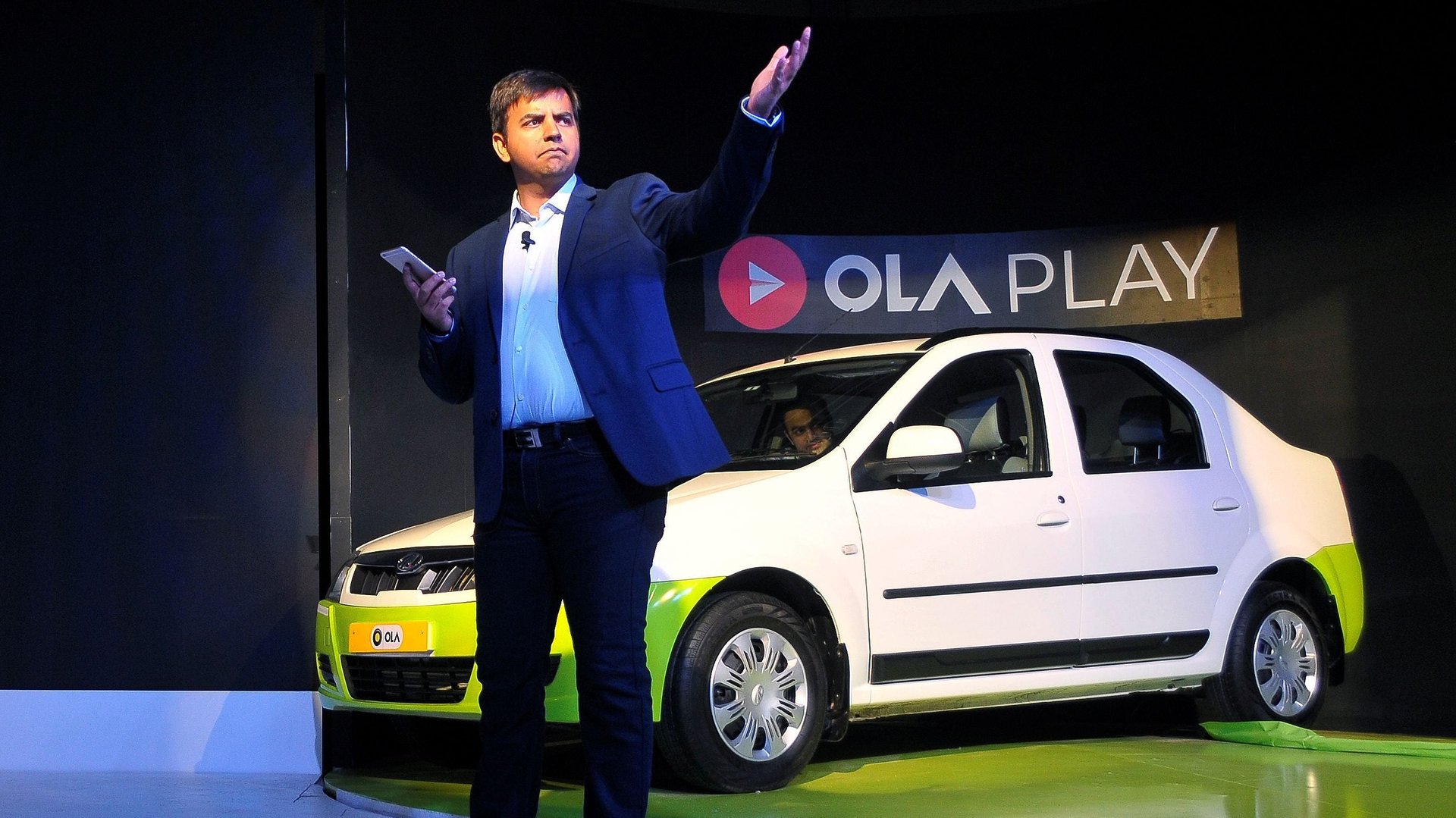When a celebrated unicorn founder was stumped by an Indian monk who sold his Porsche
It’s not every day that one gets to learn the inner workings of an entrepreneurial mind.


It’s not every day that one gets to learn the inner workings of an entrepreneurial mind.
So, when Bhavish Aggarwal, the co-founder & CEO of India’s largest cab aggregator Ola was put on the hot seat for a rapid-fire round with a former entrepreneur who gave up all his possessions, including a Porsche car, to become a noted monk, Quartz lapped up the opportunity.
The monk, Om Swami, fondly called Swamiji, is the final word on spirituality for over 50,000 of his followers on YouTube, even though he is not on any social media. His meditation app, Black Lotus, has been downloaded 60,000 times in the past five months. Swamiji is also an author who published his first book, If Truth Be Told: A Monk’s Memoir, in December 2014. He went on to write nine other titles on topics ranging from meditation, wellness, and mindfulness, to mantra sadhana, over the past four years.
A self-admitted recluse, Swamiji lives in a remote location in the hills of Himachal Pradesh. He tore himself away from his quaint surroundings to land in Bengaluru on Jan. 18 for a public event to launch Black Lotus. In an impromptu rapid fire with Aggarwal, Swamiji drew out the spiritual in the guest of honour.
“I have never thought of these things. But, now I am,” Aggarwal said, admitting being stumped by Swamiji’s questions. Edited excerpts:
What is success according to you?
Success for me is peace and happiness. I am still finding it, but if I someday feel that, I will feel I am successful.
What is the single most important thing in professional and personal life?
Same thing for both: Take risks. We keep thinking “should I do this or not,” “am I right or not?” I believe, if you don’t try, you wouldn’t know. It’s always good to give it a shot.
What are your three core principles or values in life?
Honesty to oneself and the ones who care about you; take risks; creating value for the community and not just for yourself.
If you were given a choice between running a $500 billion company that makes tobacco products, versus a small enterprise that is feeding people in a tiny community, which one would you choose? Is that a difficult choice?
No, it isn’t. I would take the small business and make it big.